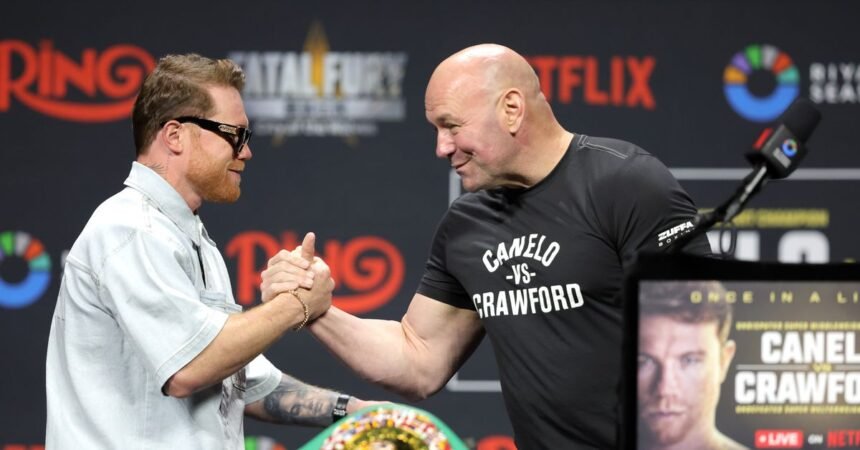The major changes to the Muhammad Ali Act are being introduced through a new partisan bill in Congress that will clear the path of UFC-style promotion in the sport of boxing.
The Muhammad Ari American Boxing Revival Act, approved by the Boxing Committee Association, was announced on Wednesday by US representatives Brian Jack (R-GA-03) and Sharis David (D-KS-03). David is a former MMA fighter who was elected to represent Kansas in Congress in 2019.
Under the proposed law, an update to the existing Muhammad Ari Act will allow the establishment of United Boxing Organizations (UBOs) that will serve as an alternative to current authorized bodies such as the WBA, WBC, and IBF.
The proposed bill will allow UBO to function effectively, as the UFC does in MMA sports. The following languages explain how UBO works differently than traditional boxing models.
“Unified Boxing Organization… means an association, a league, or a centralized industry organization in the private sector that organizes a professional boxing match in a system in which a boxer under contract with such association, league or centralized industry organization competes against another such boxer pursuant to unified rules and without relief on a sanctioning organization operating independently of such association, league or centralized industry organization, implements a system for title belts and ranking for boxers under contract with such association, league or centralized industry organization.
UBO can promote events, maintain rankings and distribute UBO-specific title belts, as the UFC does in MMA.
“As a former MMA fighter, I know first hand the physical and financial risks that come with stepping into the ring,” Sen. David said in a statement. “This bipartisan bill is to give professional boxers the protection, opportunity and freedom of choice they deserve. I am proud to work across the aisle to strengthen the future of boxing in America and ensure athletes are treated fairly and safely.”
In addition to creating a UBO, the proposed amendment establishes a minimum of one payment by the boxer at $150. That may not sound much, but many states don’t have minimal setups, so promoters are allowed to pay for what they need. This usually affects boxers early in their careers.
Some of the bills also establish higher insurance coverage for fighter jets.
But the main core of the bill depends on creating a UBO. It is touted as a way to add a new “health and safety protection”: a “comprehensive anti-doping testing program” and a “strict prevention policy.” Under the bill, UBO’s “prices boxers will not be charged for placing them in rankings or rights to participate in championship matches.”
“The Board of Directors of the Boxing Committees Association is unanimously supporting the new Muhammad Ari American Boxing Revival Act,” said Michael Matzli of the Boxing Committees Association in the release. “This new law provides much-needed updates to the Professional Boxing Safety Act of 1996 by strengthening health standards protecting boxers, establishing national minimum payments per round, and defining requirements for national minimum health insurance.
“This bill will alleviate the exploitation of debut fighters and all professional fighters who participate in pugilism’s sweet science.”
Modifications to the existing Muhammad Ari Act have been in the works for a long time after TKO Group Holdings (the parent company of the UFC) announced plans to participate in the sport of boxing. TKO Boxing was just approved for the promoter’s license in Nevada on Wednesday, and there were plans to launch at the Battle of Canelo Alvarez vs. Terence Crawford in September.
TKO Boxing is supported financially through a general entertainment fund led by Saudi Arabia and Turki Alalshikh.
If the bill passes Congress, it will land on President Donald Trump’s desk for approval.


